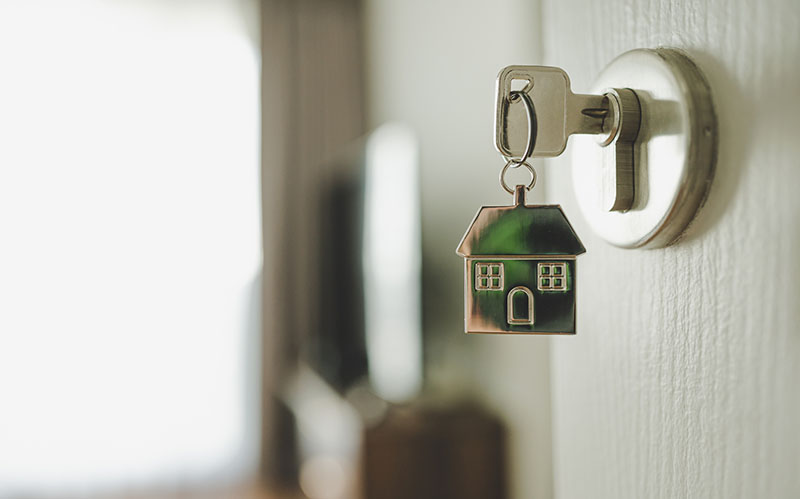
This content is for information and inspiration purposes only. It should not be taken as financial or investment advice. To receive personalised, regulated financial advice please consult us here at Elmfield Financial Planning in Padiham, Burnley, Lancashire.
According to the 2020-21 English Housing Survey, renting in retirement (versus owning a home either outright or with a mortgage) has risen in popularity in recent years. Indeed, the number of over-65s in privately-renting housing is up by over 100,000 since a decade ago. Yet should you be renting in retirement, or is it better to own your property? In this article, our Burnley financial planners explore the case for both sides in 2023.
The UK case for renting in retirement
If you want flexibility in retirement, then renting can be an attractive option. You can more easily move to a different part of the country (since there is no property to sell), potentially even going abroad if you want to. There are also fewer maintenance and repair costs for you to shoulder. If the roof needs a major repair, for instance, then the landlord is responsible to arrange any servicing. Similarly, if the electrical wiring, gas pipes, boilers, heating and hot water need attention, you are not the one burdened to arrange professional help and pay for it. Renting can also offer greater up-front affordability since you do not need a large deposit for a mortgage. As a tenant, you do not need to contend with taxes on a property, either (e.g. inheritance tax or stamp duty land tax if you are purchasing a home worth over £425,000 as a first-time buyer).
The UK case against renting in retirement
As financial planners here in Padiham, we note that many people place great value in sensing that their home is “theirs”. Renting, however, offers less control compared to owning. You will be subject to the landlord’s rules, expectations and decisions. If he decides to sell the property, for instance, then you have little choice but to move. You also cannot build up equity in your home as a tenant (unless you participate in a scheme like Right to Shared Ownership, but this might not be available). Renters may face increases in their rent during retirement, potentially lowering their disposable income and standard of living. Since 2022, many landlords have raised rents by 4% or more to try and offset the impact of rising interest rates on their mortgages. As a tenant, your monthly rental payments also do not build wealth – they simply “disappear” into a landlord’s pocket, with no clear return on investment.
The UK case for owning a home in retirement
A huge benefit of outright home ownership – whether in retirement or during a career – is that it greatly lowers your fixed costs. This allows you to keep more of your monthly income to spend on things you enjoy, or to invest towards your goals. It also helps to shield you from detrimental events in the economy – such as higher inflation and interest rates. As a homeowner, you also build up equity in your property over time. This opens up more options for you in the future, such as downsizing or engaging in equity release if you are short on retirement funds. You also enjoy greater control over home improvements, alterations (e.g. extensions) and whether or not you can keep pets. There is also the investment potential of property. Since 1980, average property prices have risen by 1,145% (although past performance is no guarantee of the future).
The UK case against owning a home in retirement
When you own your home, any maintenance and repair costs fall on your shoulders. This can get expensive for those in retirement, especially since any large outlay risks undermining the sustainability of your pension (remember, you likely have no salary to replenish your outlay). There are also taxes you may have to contend with as a homeowner. Inheritance tax is levied at 40% on the value of an individual’s estate over £325,000 in 2022-23, which can be extended by £175,000 if you leave your family home to “direct descendants”. Your commitment to your property also reduces your mobility and flexibility. If you want to move, you will probably need to sell and buy elsewhere – an often lengthy and costly process. Also, owning a home in the first place is not easy these days with the large deposits required (in historical terms). Even a 10% mortgage on a £200,000 home, for instance, may require an up-front cost of £20,000 or more. If you take a mortgage into retirement, then you are still vulnerable to higher potential costs in the future (e.g. if interest rates go up and you need to renew your fixed-rate deal).
Final thoughts & invitation
Owning a home versus renting in retirement is a complex and highly personal decision. Multiple factors need addressing such as your financial goals, your present circumstances, your assets and liabilities and more. Talking through your options with an experienced financial adviser can help you weigh up your options with the best possible information.
If you are interested in starting a conversation about your own financial plan or investments, then we’d love to hear from you. Please contact us to arrange a free, no-commitment consultation with a member of our team here at Elmfield Financial Planning in Padiham, Burnley, Lancashire.
Reach us via:
T: 01282 772938
E: info@elmfieldfp.co.uk

